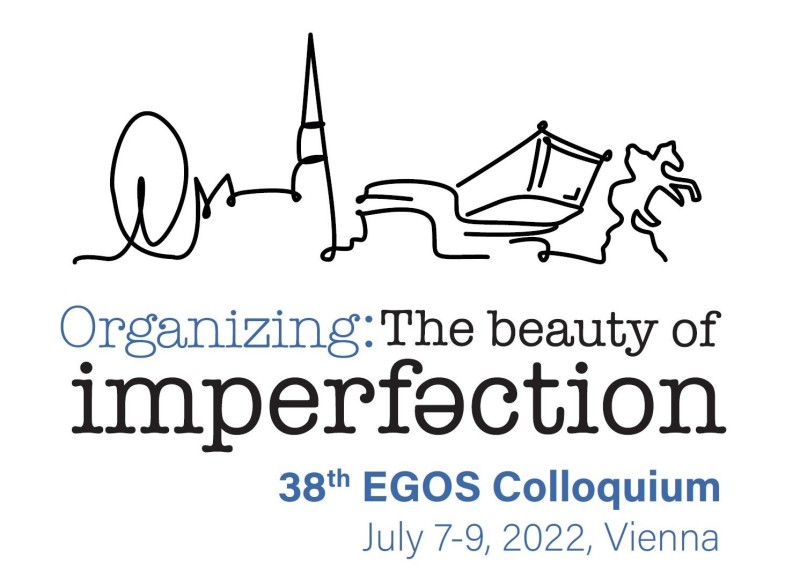Sub-theme 36: Invisible Inequalities in and around Organizations: Sources, Manifestations, and Consequences
Call for Papers
There is an increasingly impressive body of research on inequalities in organizations (Amis et al., 2020; Amis et al.,
2018; Suddaby et al., 2018; Bapuji et al., 2020). Knowledge is accumulating about inequalities rooted in visible demographic
characteristics such as gender, ethnicity, age, physical appearance and attraction, and physical disability (Acker, 2006;
Nault et al., 2020). The visible and material manifestations of these inequalities, such as wages and working conditions,
are becoming well understood (Cobb, 2016; Leana & Meuris, 2015; McCarthy et al., 2020; Soundararaja et al., 2019).
However, relatively limited attention has been paid to inequalities rooted in invisible demographic characteristics
such as caste, clan, class, privilege, culture, and neurological disability (Chrispal et al., 2021; Côté, 2011; Gray &
Kish-Gephart, 2013; Pitesa & Pillutla, 2019). There is, furthermore, limited understanding about inequalities reproduced
by non-wage practices of organizations such as corporate responsibility and marketing, inequalities outside the organizational
boundaries (e.g., in supply chains, partner organizations, and customer organizations), and inequalities in the informal sector
(Bapuji et al., 2020). Importantly, research has focused mainly on western contexts and individualistic cultures, so inequalities
in non-Western contexts and collectivistic cultures remain under-explored (Barkema et al., 2015).
In terms
of consequences, research has focussed mainly on the visible consequences of inequalities such as harassment, bullying, and
stigma (e.g., Willness et al., 2007). There is a space for more research on invisible consequences such as mental health issues,
on invisible and symbolic manifestations such as well-being, status, health and recognition, and how inequalities within organizations
have consequences for lives outside organizations, such as domestic abuse and alcoholism.
There is, therefore,
a need to broaden the agenda of research into inequalities so that we recognize these many other, invisible sources, manifestations,
and consequences. We seek to engage with scholars across a range of communities with a shared interest in advancing organizational
research on inequality, including human resource management, organizational behavior, organizational theory, diversity and
inclusion, entrepreneurship, strategic management, business ethics, operations and supply chain management, and international
business.
We encourage the submission of insightful and novel conceptual and empirical work that can help
shape the way we understand invisible inequalities in and around organizations. Some suggested questions include, but not
limited to:
What inequalities remain largely invisible to or unaddressed by researchers?
How does current knowledge about inequalities inhibit wider understanding of currently ‘invisible’ inequalities?
How can organizations identify and address invisible inequalities in their organizational practices?
How do invisible inequalities influence employees and organizations?
How do employees navigate invisible inequalities?
What factors contribute to the persistence of invisible inequalities in organizations?
How do human resource management practices influence invisible inequalities within organizations?
How do invisible inequalities manifest in individual and group behaviours at work/in organizations?
How do invisible inequalities affect entrepreneurship, business strategies, supply chain and operations management, and international business practices?
References
- Acker, J. (2006): “Inequality regimes: Gender, class, and race in organizations.” Gender & Society, 20 (4), 441–464.
- Amis, J.M., Mair, J., & Munir, K.A. (2020): “The organizational reproduction of inequality.” Academy of Management Annals, 14 (1), 195–230.
- Amis, J.M., Munir, K.A., Lawrence, T.B., Hirsch, P., & McGahan, A. (2018): “Inequality, institutions and organizations.” Organization Studies, 39 (9), 1131–1152.
- Bapuji, H., Ertug, G., & Shaw, J.D. (2020): “Organizations and societal economic inequality: A review and way forward.” Academy of Management Annals, 14 (1), 60–91.
- Bapuji, H., Patel, C., Ertug, G., & Allen, D. (2020): “Corona crisis and inequality: Why management research needs a societal turn.” Journal of Management, 46 (7), 1205–22.
- Barkema, H.G., Chen, X.P., George, G., Luo, Y., Tsui, A.S. (2015): “West meets East: New concepts and theories.” Academy of Management Journal, 58 (2), 460–479.
- Chrispal, S., Bapuji, H., & Zietsma, C. (2021): “Caste and Organization Studies: Our Silence Makes us Complicit.” Organization Studies, 42 (9), 1501–1515.
- Cobb, J.A. (2016): “How firms shape income inequality: Stakeholder power, executive decision making, and the structuring of employment relationships.” Academy of Management Review, 41 (2), 324–348.
- Côté, S. (2011): “How social class shapes thoughts and actions in organizations.” Research in Organizational Behavior, 31, 43–71.
- Gray, B., & Kish-Gephart, J.I. (2013): “Encountering social class differences at work: How "class work" perpetuates inequality.” Academy of Management Review, 38 (4), 670–699.
- Leana, C.R., & Meuris, J. (2015): “Living to work and working to Live: Income as a driver of organizational behavior.” Academy of Management Annals, 9 (1), 55–95.
- McCarthy, L., Soundararajan, V., & Taylor, S. (2020): “The hegemony of men in global value chains: Why it matters for labour governance.” Human Relations, first published online on August 24, 2020, https://doi.org/10.1177/0018726720950816.
- Nault, K.A., Pitesa, M., & Thau, S. (2020): “The attractiveness advantage at work: A cross-disciplinary integrative review.” Academy of Management Annals, 14 (2), 1103–1139.
- Pitesa, M., & Pillutla, M.M. (2019): “Socioeconomic mobility and talent utilization of workers from poorer backgrounds: The overlooked importance of within-organization dynamics.” Academy of Management Annals, 13 (2), 737–769.
- Soundararajan, V., Brown, J.A., & Wicks, A.C. (2019): “Can multi-stakeholder initiatives improve global supply chains? Improving deliberative capacity with a stakeholder orientation.” Business Ethics Quarterly, 29 (3), 385–412.
- Suddaby, R., Bruton, G., & Walsh, J. (2018): “What we talk about when we talk about inequality: An Introduction to the Journal of Management Studies Special Issue.” Journal of Management Studies, 55 (3), 381–393.
- Tsui, A.S., Enderle, G., & Jiang, K.F. (2018): “Income inequality in the United States: Reflections on the role of corporations.” Academy of Management Review, 43 (1), 156–168.
- Willness, C.R., Steel, P., & Lee, K. (2007): “A meta‐analysis of the antecedents and consequences of workplace sexual harassment.” Personnel Psychology, 60 (1), 127–162.


